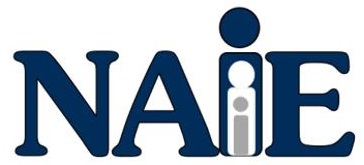June 3rd, 2020
The past week has been weighing on our minds and hearts. The murder of George Floyd by police officers and the outcry for justice is alarming. We cannot allow this cycle of racism and violence to continue. As individuals we can make a difference; as a collective, we can make a lasting difference.
It is well-documented that the sign language interpreting field is predominantly made up of white individuals.1,2 The NAIE Board of Directors recognizes that the majority of our board identifies as white. We acknowledge these words are written from a framework of privilege. Therefore, we promote the importance of listening/supporting our Black colleagues, communities, and leaders.
We see you. We stand with you.
Actively engaging in the fight against widespread systemic racism, injustice, inequality, and police brutality can come in many different forms. Pledge to commit yourself to action. We have collected the following resources and recommendations from a variety of Black community leaders:
Act. 75 Things White People Can do For Racial Injustice by Corinne Shutack includes actionable steps you can take within your local context.
Listen. The National Black Deaf Advocates (NBDA), Gallaudet University, and the National Association of the Deaf (NAD) hosted a special town hall live on Facebook to unite against racism and violence. The recording can be viewed here. Black deaf community members, including many Black deaf youth, created this video to bring awareness to the issues they continue to struggle with including oppression and racism.
Educate yourself. Anti-Racism Resources for White People compiled by Sarah Sophie Flicker and Alyssa Klein is an extensive collection of educational materials. Deaf Power’s BlackLivesMatter page highlights additional resources including Black Deaf Culture Through the Lens of Black Deaf History by Benro Ogunyipe (NBDA President 2011-2013). The Diversity Academy for Interpreters is also a deaf-led organization committed to providing “a safe, nurturing community for interpreters to connect, learn, and grow.”
Talk with kids about race. As interpreters working in education, we encounter and interact with children and teens on a daily basis. Your Kids Aren’t Too Young to Talk About Race: Resource Roundup by Katrina Michie offers a variety of perspectives to consider when addressing children of any age with issues and topics of race. Follow The Conscious Kid on social media (Twitter, Instagram, Facebook) who recently shared a summary of research-based evidence on the importance of talking to young children about race. Educational interpreters are also the link for many deaf, hard of hearing, and deafblind students to learn about Black deaf community resources such as role models, NBDA, the Black ASL project, and more.
Write a letter. See the NAACP’s list of demands for accountability in the death of George Floyd and call for criminal justice reform as well as additional policy considerations for top priority. Know where your representatives stand on the issues and make your stance known.
Support the cause. There are several bail relief funds, fundraising efforts, petitions, and trans resources that can use your support.
We understand these recommendations only scratch the surface of how we each can promote a more just society. NAIE is committed to continuing the conversation. The NAIE Member Network Facebook Group is a space where we encourage dialogue and sharing resources so that we can further enhance our collective knowledge and action. We welcome further recommendations and feedback from communities of color for additional ways we can work together. Please feel free to contact us at info@naiedu.org.
Notes and References:
- A 2014 National Survey of Educational Interpreters found of 1,615 survey respondents, 89% identified as Caucasian. Johnson, L. J., Taylor, M. M., Schick, B. S., Brown, S., & Bolster, L. (2018). Complexities in educational interpreting: An investigation into patterns of practice. Edmonton, AB: Interpreting Consolidated.
- The Registry of Interpreters for the Deaf’s 2018 Annual Report indicated out of 14,284 members 8,023 (56%) identified as Euro American/White.
